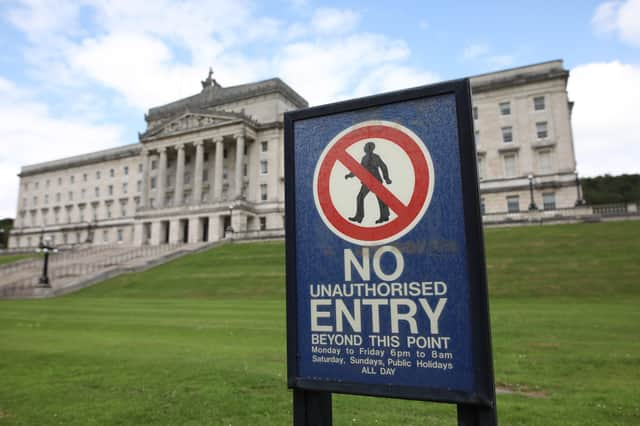Top Stormont economist warns of a ‘very, very difficult January’ for NI in Brexit transition period


Shane Murphy told the Economy Committee: “We were probably already concerned about preparedness, and then Covid came along and made things immensely more difficult.
“For an awful lot of firms out there Covid is today’s problem and they can’t get their heads above water.
Advertisement
Hide AdAdvertisement
Hide Ad“Businesses constantly express a lot of frustration about clarity, and that’s really in very short supply at the minute, frustration that things of this magnitude need clarity along with time to prepare and time to adjust.
“A lot of key things are still being negotiated in one form or another between the UK Government and the EU and obviously time is short, we’re now measuring things in days.
“At that high level the picture is very concerning, major changes are on the way in January.
“Speaking very candidly, as things stand, we’re anticipating a very, very difficult January.”
Advertisement
Hide AdAdvertisement
Hide AdTrade negotiations between the UK and EU are continuing, although time is running short for a deal to be reached and ratified before the current transitional arrangements expire at the end of the year.
European Commission president Ursula von der Leyen told MEPs the talks were in “decisive days”, adding: “I cannot tell you today if, in the end, there will be a deal.”
There had been “genuine progress” in some areas, with the outline of a “possible final text” in areas including criminal justice, goods and services and transport.
But there have been no breakthroughs in the three areas which have proved problematic for months – fishing rights, governance of any deal and the “level playing field” designed to prevent unfair competition on standards and state subsidies.
Advertisement
Hide AdAdvertisement
Hide AdMs von der Leyen said “with very little time ahead of us” the EU was “ready to be creative”, but it would protect the integrity of the single market.
There were still “serious issues” around state aid and the possibility of the UK drifting away from EU standards on labour and environmental standards.
Boris Johnson has insisted he will not sign up to anything which ties the UK to EU rules, but Ms von der Leyen said: “We want to know what remedies are available in case one side will deviate in the future because trust is good, but law is better.”